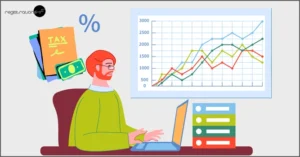What is meant by Allowance in Income Tax

When we talk about salaries and income tax in India, the term “allowance” comes up quite often. For a salaried employee, understanding what allowances are and how they are taxed can make a significant difference when it comes to tax planning and filing returns. Let’s break it down in a simple and relatable way.
What is Allowance in Income Tax?
An allowance is a fixed amount of money paid by an employer to an employee to meet certain specific expenses. It is usually a part of your salary structure and is given over and above your basic salary. The purpose of an allowance is to cover expenses like housing, travel, food, or work-related costs.
From an income tax perspective, allowances are either fully taxable, fully exempt, or partially exempt depending on the type of allowance and the rules defined under the Income Tax Act, 1961.
Types of Allowance in Income Tax
Allowances are broadly classified into three categories based on their tax treatment:
1. Fully Taxable Allowances
These allowances are added to your income and taxed as per your income tax slab.
Examples include:

a. Dearness Allowance (DA)
Dearness Allowance is a cost-of-living adjustment paid to employees, especially government workers and pensioners. It helps them cope with rising prices due to inflation.Think of it as a financial cushion. As daily expenses go up (like groceries, fuel, or rent), DA ensures that your salary doesn’t lose its real value over time.Mostly central and state government employees and public sector workers.
b. Overtime Allowance
This is extra pay you receive for working beyond your regular office hours.It recognizes your hard work when you go the extra mile—like staying late to meet a deadline or working on a weekend shift.
Any employee, especially in industries like manufacturing, services, or government departments, where extra hours are often required.
c. City Compensatory Allowance (CCA)
CCA is a special allowance given to employees working in big cities where the cost of living is high (like Delhi, Mumbai, Bengaluru).It helps offset the higher expenses of living in metro cities—like expensive rent, transport, and food.Generally paid to government or public sector employees posted in Tier-I or metro cities.
d. Entertainment Allowance
This is a small amount provided to employees (especially in higher roles) to cover costs related to official entertainment—like client meetings or business hospitality.It allows employees to maintain professional relationships or represent the company during official events—without paying from their own pocket.Typically provided to senior officials, government officers, or those in roles involving client interaction.
2. Partially Exempted Allowances
These are taxable only after a certain limit, and the rest is exempt.
Examples include:

a. House Rent Allowance (HRA)
HRA is the money your employer gives you to help cover your house rent if you’re living in a rented home.Living in cities can be expensive, and HRA offers financial relief. The best part? You can claim tax exemption on HRA under Section 10(13A) of the Income Tax Act—but only if you actually pay rent. If your salary includes ₹20,000 as HRA and you pay rent, you can save tax on a portion of that amount depending on your salary, rent paid, and city of residence (metro or non-metro).
b. Leave Travel Allowance (LTA)
LTA is the amount your employer gives you for traveling with your family within India—usually during your leave days. It encourages employees to take breaks and spend time with family while saving on travel expenses. You can claim tax benefits on travel costs (train or airfare) but only for domestic travel and under certain conditions.You can claim LTA twice in a block of four calendar years—make sure to keep travel bills and tickets as proof.
c. Children Education Allowance
This is a small fixed allowance your employer gives to help you manage your child’s school education expenses. While the amount is modest (₹100 per month per child, up to 2 children), it’s exempt from tax, showing the government’s intent to support working parents. There’s also a Hostel Expenditure Allowance (₹300/month per child) if your child lives in a hostel. Many people overlook this!
3. Fully Exempted Allowances
These are completely tax-free under the Income Tax Act.
Examples include:
- Allowances paid to government employees working abroad
- UN employees’ allowances
- Allowances paid to High Court or Supreme Court judges
Difference Between Allowance and Perquisites
Although both allowances and perquisites are part of the salary structure, they are not the same.
| Feature | Allowance | Perquisite (Perk) |
| Definition | Fixed amount paid to cover specific expenses | Non-cash benefit or facility provided by employer |
| Example | House Rent Allowance, Travel Allowance | Rent-free accommodation, company car |
| Taxability | Can be fully taxable, fully exempt, or partial | Generally taxable unless specifically exempt |
In simple terms, allowance is cash, while perquisite is a benefit or a facility provided by the employer.
FAQs
Q1: Are allowances exempt from tax?
Some are, some aren’t. Allowances like HRA and LTA may be partially exempt, while others like Dearness Allowance are fully taxable.
Q2: Are allowances taxable in India?
Yes, most allowances are taxable unless specifically exempt under the Income Tax Act.
Q3: Does allowance count as income?
Absolutely. Allowances are a part of your gross income and should be reported while filing your income tax return.
Q4: Is allowance part of salary?
Yes, allowances are included in your salary structure and are considered part of your total salary.
Final Thoughts
Understanding the types and tax treatment of allowances can help you plan your taxes better and save money legally. Whether you are negotiating a salary or planning your tax deductions, being aware of how allowances work is a smart financial move.
Categories: Taxation
Tags:





